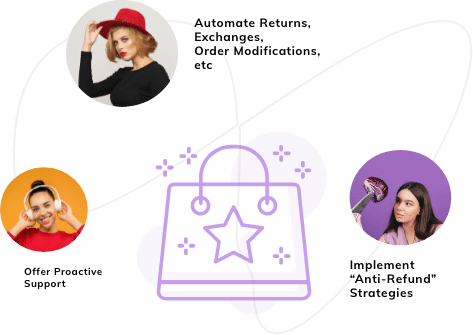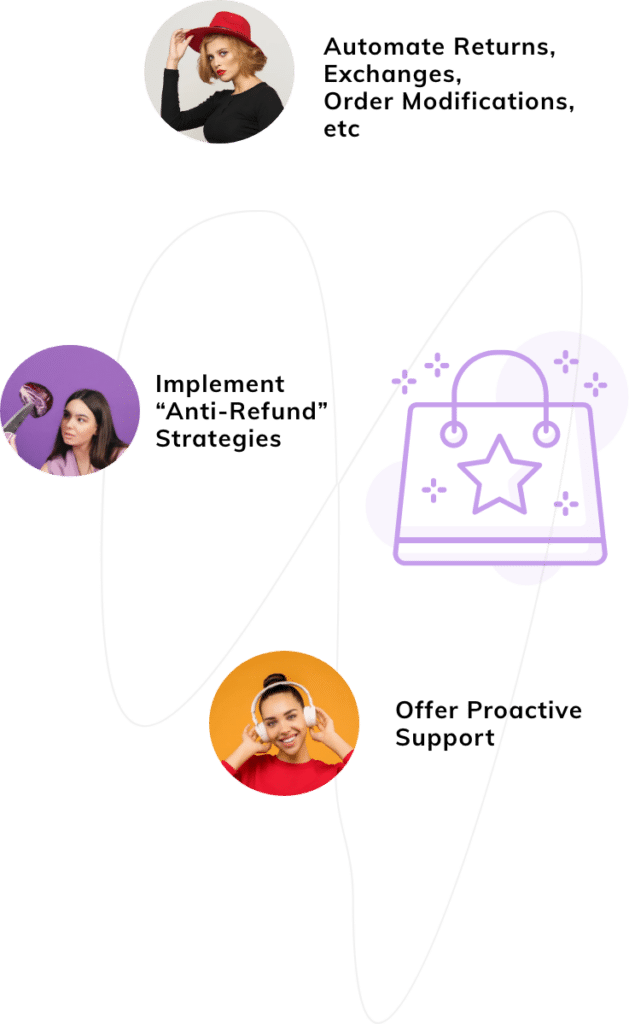Last Updated: April 2024
If you are running an online business, then having eCommerce CRM could be of great help. It assists you in understanding customer behavior and developing a long-lasting relationship with prospects. The result would be an increase in sales conversions and your business revenue.
In fact, the WebFX blog says that 60% of businesses improved their productivity by using CRM.
So, let’s dive in to learn more about the role of CRM in e-commerce and why you need to employ it.
Why Does eCommerce CRM Matter?
According to MarkinBlog, there are more than 26 million eCommerce websites around the world. Thanks to ongoing digitalization, more are launched every day. So, it is difficult to overcome all the competition and stay in the business.
However, as per Oberlo, there are 2.64 billion digital buyers across the globe. Thus, there are always prospects available if you can market your products and services well.
Note that one of the important tools that can help you to stay ahead in the market is customer retention. In fact, it costs 5 times more to acquire new customers than to retain existing ones.
Therefore, the best mantra that can help you to retain consumers is offering positive experiences. So, along with selling products and services, you need to deliver top-notch customer service. That is where eCommerce CRM comes into play.
What is eCommerce with CRM?
CRM in e Commerce stands for Customer Relationship Management. Since it is CRM eCommerce, it primarily focuses on online sales and customer experiences.
Basically, it records and stores all the relevant data about your users along with prospect information. Based on all this data, you can get an overview of your business operations and determine potential sales opportunities. Also, you can organize and analyze customer interactions. In fact, most of the e Commerce CRM software has the ability to evaluate required key metrics such as –
- Sales conversion rate,
- Click-through rate,
- Average order value,
- Customer acquisition cost,
- Returning customer rate,
- Customer-interested products/ services,
- Email subscription opt-ins,
- And many more.
Therefore, for a developing business, CRM is like a goldmine. If used effectively, you can increase your sales revenue.
Also, read – What are BigCommerce API Calls? What can you do with them?
Reasons for Using CRM in eCommerce
1) Gives History of Customers
To offer a better service, first, you need to know what the customer wants. By learning the buyer trends and patterns, you can determine the target customers for your existing and new products.
Thus, with the history of a customer, you can analyze customer needs and can build new products to fulfill them. What’s more? you can even determine whether the user will react positively or negatively to a new product.
On top of that, the history of customer purchases tells you –
- What is the best-sold product?
- At what time of the year what item is popular?
- During which period in the year, you had the most sales?
- What is the price of the biggest purchase?
Based on all the data, you can design new items and promote existing products by meeting the prospect’s expectations in terms of price and other characteristics.
Actually, it becomes easier with the help of software like Saufter. They let you view all of your consumer’s history in one platform without changing channels.

2) Efficient Team Management
Salesforce says that 47% of customers will stop buying from a business that offers a subpar experience. This makes it clear that consumer behavior is directly related to the services they receive.
With the help of CRM in e-commerce, you can categorize your customers into groups. For example, you can make a premium group by adding members who purchase expensive products. In the same way, you can create a medium group with members who buy regular products.
Now, if you think about these two categories, would you assign the same staff to handle any services? Of course, not! You should assign employees who have adequate knowledge about the respective products for each group.
You need to smartly allocate your resources for each group to manage and deliver your services efficiently and effectively.

3) Train Your Employees Easily
Your employees are the ones that your customers meet the first time they reach out to your store. Therefore, it is very important to make a good first impression to retain and start a long-lasting relationship with your consumers. Bearing this in mind, you need to train your representatives.
Basically, with the e-commerce CRM, you can determine how to train your staff, by knowing:
- What kind of customers visit your store,
- Why, and how they make decisions.
This brings clarity to your online business and makes your service team the best in the market.
With software like Saufter, you can configure to automatically train your agents based on the simulations developed by previous customer interactions. Actually, there offer another option to get experienced agents. That is to hire them from Saufter marketplace.
Also, read – Top 10 Shopify Marketing Automation Apps 2024
4) Personalize Your Marketing Strategy

Research from Accenture reveals that customers become loyal to a business when they receive personalized services.
For instance, you can send a message or SMS displaying the user’s first name or a coupon code depending on the past purchase or demographic information such as location. Thus, create a positive impact on your consumers.
Through personalization, you can send the right messages at the right time. Also, recommend products or services to the right people.
In fact, 85% of your customers make a purchase after getting personalized home page promotions. In addition, shopping cart recommendations when personalized can influence 92% of consumers.
Here, data collected by eCommerce CRM plays a major role.
- It informs you of consumers’ past purchase details,
- Even tells you which way they prefer to be contacted (by email or SMS).
- Give you data access 24/7 with which you can create personalized marketing strategies for different groups of consumers,
- Finally, improve your response rate.
5) Expand Your Business
Every merchant hopes to expand their business. But it could be overwhelming to gather and analyze the user data and perform other business operations. You won’t have time to think about expansion.
One major advantage of CRM in e-commerce is that it saves you time. It gives you access to existing and potential consumers’ data anytime you want, that too at a clickable distance. Not only that, but by evaluating the CRM data, you can invest your resources in the right direction.
This is translated to increased productivity which in turn improves your sales and revenue.
The CRM also helps you to fulfill your promises to your clients which increases your brand image and strengths your position in the market.
By knowing exactly what your consumers want, it becomes easier to decide which area you can choose to expand your business and strategize the steps you need to take to become a success.
6) Improve Customer Loyalty
Even though it is truly about managing relationships with your consumers and delivering positive experiences, combining eCommerce with CRM has a great impact.
One case study about “The Impact of Application of Electronic Commerce on the Customer Relationship Management” found that CRM for eCommerce improves user satisfaction and loyalty. Actually, it said that all the following factors affect customer loyalty.
- Competency,
- Solving customer problems,
- Capability to establish relationships,
- Commitment,
- Quality of relationship,
- Trust.
Implementing the e-commerce CRM is beneficial not only because it is capable of recording and storing user data 24/7 but also because it can accomplish all the above factors. Ultimately, it results in positive customer experiences.
Also, read – E-commerce Chatbots: Benefits and How to Use them Effectively?
Final Words
The traditional CRMs are designed for B2B businesses and they need agents to log the information manually. Unlike them, e-commerce CRM has the ability to collect user data by connecting with existing systems such as the website.
Therefore, it can easily track customer behavior and give you a better understanding of the data.
In the end, it is clear that by implementing CRM in eCommerce you can improve your customer satisfaction and business performance.
You can also do that by employing Saufter. It offers all the basic and customizable ticketing features including automated workflows, a self-service portal, an AI chatbot, marketing, live chat, email, SMS, and phone services. Additionally, integrates with social media, eCommerce, collaboration, and messaging platforms.
So, without waiting, start your free trial here! No credit card is required!









